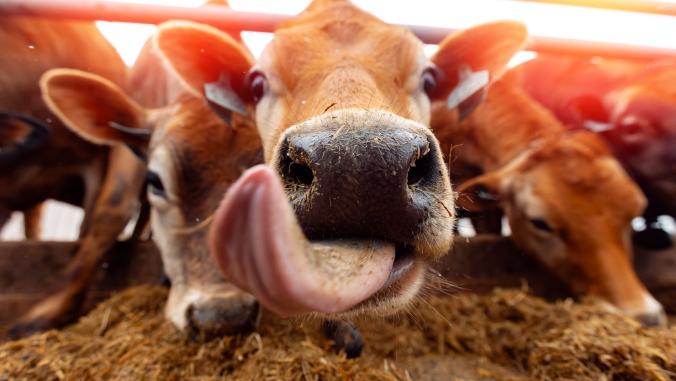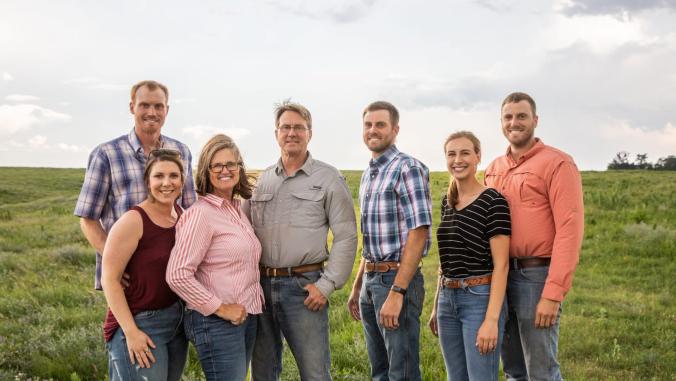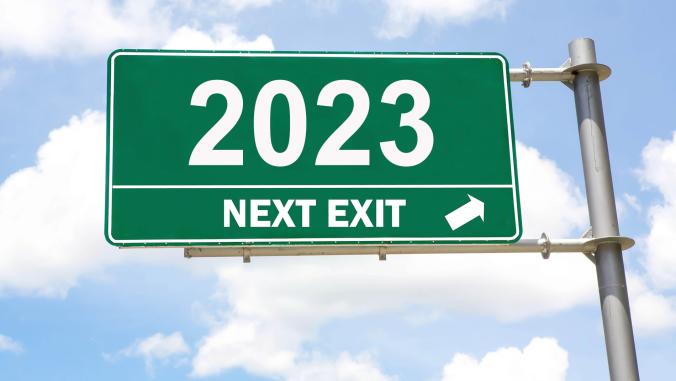Michael Meehan and the future of sustainability reporting
His resume isn't what you'd expect for an NGO exec. Here's why GRI's work has just begun, and is only getting tougher.

Last summer, Michael Meehan became the second chief executive of the Global Reporting Initiative, or GRI. With a background in venture capital and as a tech entrepreneur, his resume isn’t typical for an NGO executive.
As my colleague Heather Clancy reported in August, Meehan’s job description “is pretty daunting,” overseeing the development of new reporting frameworks that integrate methodologies for natural capital and integrated reporting; helping form tighter collaborations with myriad partners and stakeholders around the world; and being a forceful advocate for greater transparency.
His arrival at GRI comes at an interesting time. On the one hand, many corporate sustainability pros talk about having “reporting fatigue” — that is, an overdose of forms, questionnaires and other documents asking, and sometimes nearly coercing, them to disclose a growing amount of information about their company’s commitments and performance.
On the other hand, advocates of corporate disclosure and transparency, including Meehan, are stepping up their game — trying, for example, to mandate disclosure of “material” sustainability issues in corporate reports, as the Sustainability Accounting Standards Board, better known as SASB, is seeking to do in the United States.
Part of GRI's efforts are aimed at increasing the number of corporate reporters, from the thousands to the tens of thousands, as Allen White, one of GRI’s creators, noted in an open letter to Meehan published in advance of his arrival at GRI. That suggests that the work of GRI, now 15 years old, is only just beginning.
How is all this coming together? I checked in with Meehan recently in his Manhattan office to see how things are going a few months into his tenure. Here’s an excerpt from our conversation, edited for clarity and length.
Joel Makower: Michael, what did you see as the big opportunity for GRI?
Michael Meehan: For investors and shareholders, there has not been enough value in sustainability to keep them interested. But now you’re seeing sustainability embedded in the SEC. You’re seeing the Sustainable Stock Exchange Initiative. You’re starting to see sustainability creep into different areas of business.
As you know, Joel, those of us in the sustainability sector have seen it there all along. But as far as the value to business, it hadn’t been there. Now it looks like it’s here to stay, which is fantastic news. I am so encouraged that organizations like SASB and others are making headway, because that means investors are interested enough to really fill that seat at the table.
But that also means that the other stakeholders at that table — human rights, social issues, education, labor — still need that voice at the table. And that’s the purpose of GRI, the single purpose. It’s the only organization that protects that.
Makower: Do companies get that reporting is important, or is it just another box to check to prove their sustainability commitments?
Meehan: Companies are looking for reporting. Our numbers of reporters have gone up every single year — we’ve got 5,000 reporters today. There are many more that use GRI for their information and data collection, but they don’t claim GRI reports because of the way we grade them.
We’ve got 19,000 people around the world trained on GRI reports. We are supported by 600 organizational stakeholders, and they represent every aspect of the business. That’s the goal of GRI, to bring everybody to the table.
Makower: So, in your world, is reporting an end unto itself?
Meehan: It’s not just about reporting. I’m not sure if you’re familiar with the work we do with the U.N., with multinational governments, what we do in Sub-Saharan Africa, Asia, China, India, Brazil, Colombia — all over the world.
We help shape regulation. We’re referenced in the regulation of 23 countries. And that’s one of the reasons GRI is moving much more towards a formal standard instead of being an organization that provides the de facto framework for reporting.
Our second mission is the whole notion of more reporters and better reports — what type of information gets disclosed, what kind of report is produced, and the quality of that report.
Then, what do you do with all that data? Every iteration of GRI standards and framework has become more in-depth as we grow and grow. So now you’re faced with this point in the market where the reports are getting bigger and bigger and bigger. How much value is that?
When you think of companies and why they report in the first place, they don’t report to get a report. They report to understand and communicate their commitment to sustainability. The report is one output of that. The reason they do that is because historically that’s what organizations have always had — a big corporate report. The whole push around integrated reporting is to bring that information into something that’s more relevant.
But GRI isn’t about the report. It’s about the process by which organizations understand and communicate their commitment to sustainability. Whether you take that information and train your communications team about how to talk to the public about your commitment, or explain to your board how you’re investing in supply chain, or talk to your shareholders or employees, what you do with that data is the next step.
Over the years, for better or worse, GRI has become synonymous with the report. To me, that is not what’s important. What’s important is the process by which you understand the information, collect the information and communicate it.
Makower: That’s great, but GRI in the U.S. is seen, I think, fairly one-dimensionally as a standard for sustainability reporting. How are you going to change that?
Meehan: GRI historically has been a launch pad for innovation whether it likes it or not, and it will remain to be that for the foreseeable future. It’s launched new standards, it’s launched new frameworks, it’s launched careers, startups — you name it. For 17 years it’s done this, which is pretty amazing, even in spite of itself sometimes.
I think GRI really needs to look at itself as that thing in the center of the table that launches new things and then convenes everybody back to the table around sustainability.
Makower: To what end?
Meehan: GRI is there to ensure that there is a standard around how data is collected, understood and communicated. Now what you do with that data, whether you go to the SEC with that data, or whether you go to your board with that data, or whether you go to the communications team with that data, now that’s up to you.
But getting that information together in such a way that’s comparable, that’s really important stuff. There needs to be an organization that does that, and there’s only one organization in the world that does that, that includes human rights, social issues and more than just the environment.
Makower: A lot of companies would be happier if there were fewer standards and certifications they had to meet.
Meehan: If you think it’s bad now, wait a few years. I mean, today there’s a few other standards. In the future there will tons of other standards. It’s GRI’s role to ensure that there is cohesion in the marketplace with standards around the world.





